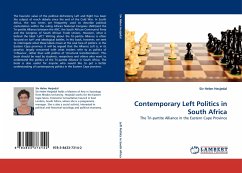In 2005, the European Constitutional Treaty was rejected by referendum in two founding States of the European Union, thereby leading to one of the most profound crises in European history. After a pause of reflection, the Lisbon Treaty, negotiated with speed and little transparence, was first rejected by the Irish people in June 2008. Even though it finally entered into force in December 2009, it can hardly be considered as endowed with genuine popular support. More generally, the popular rebuttals of these treaties revealed a deep crisis of legitimacy for the European project. In order to grasp this reality, this book carries out an in-depth analysis of the arguments customarily described as "eurosceptic" by focusing on the ideologies underlying the criticisms expressed by the left-wing forces against the European Constitution in France and Germany. The main questions running through the book are the following: are the oppositions to the European Union based on anti-European arguments? And what are their other possible motives related to broader visions of social rights, democracy, identity and strategy?
Bitte wählen Sie Ihr Anliegen aus.
Rechnungen
Retourenschein anfordern
Bestellstatus
Storno








